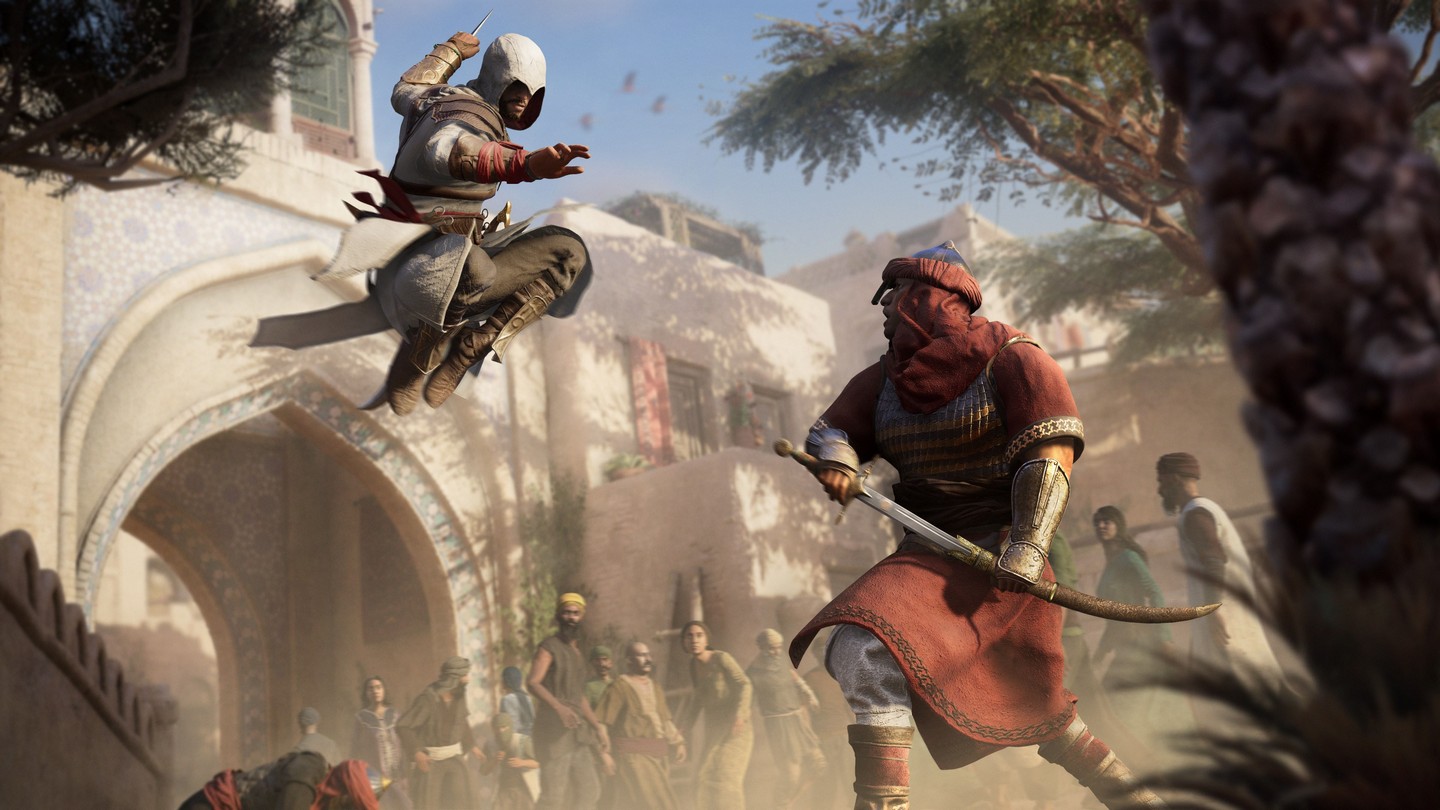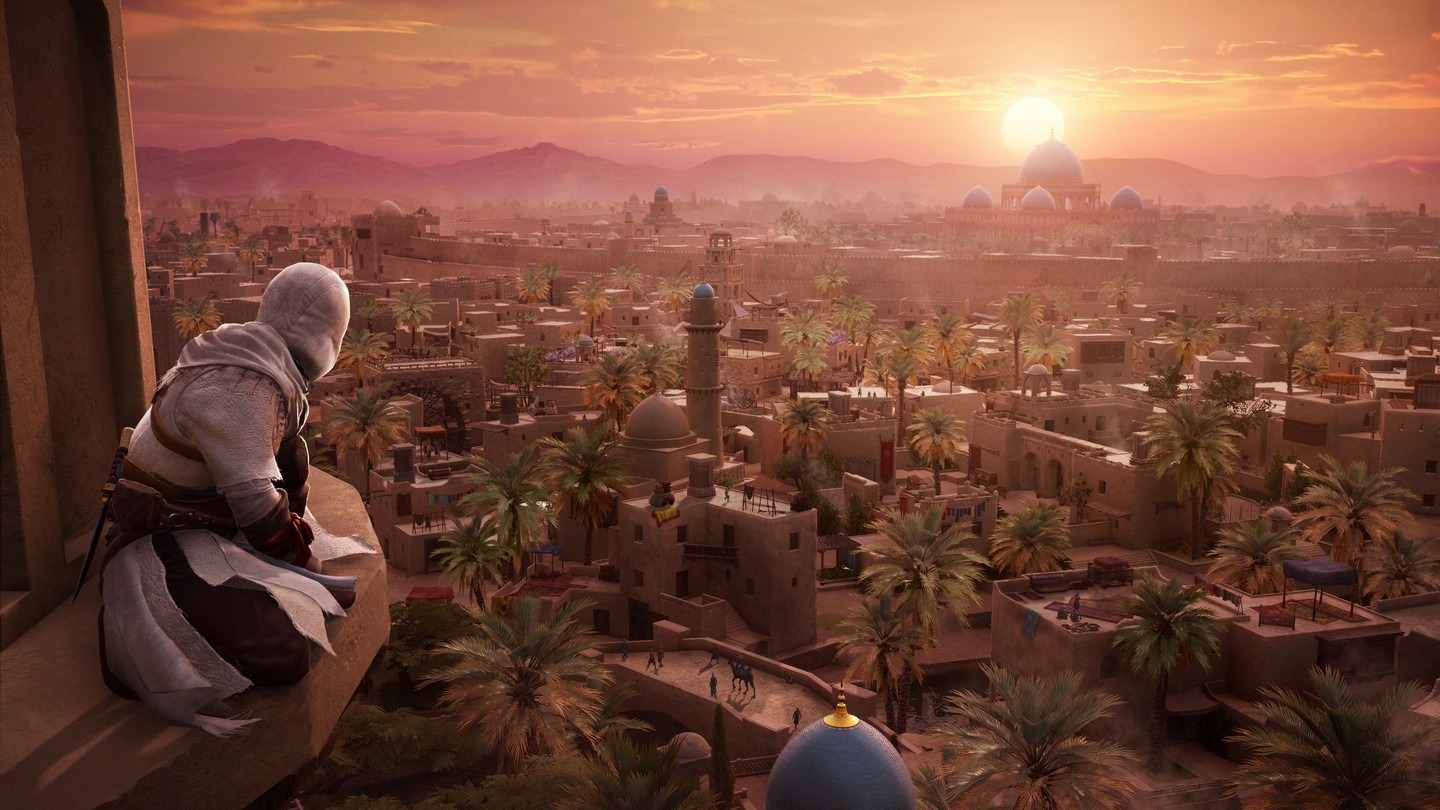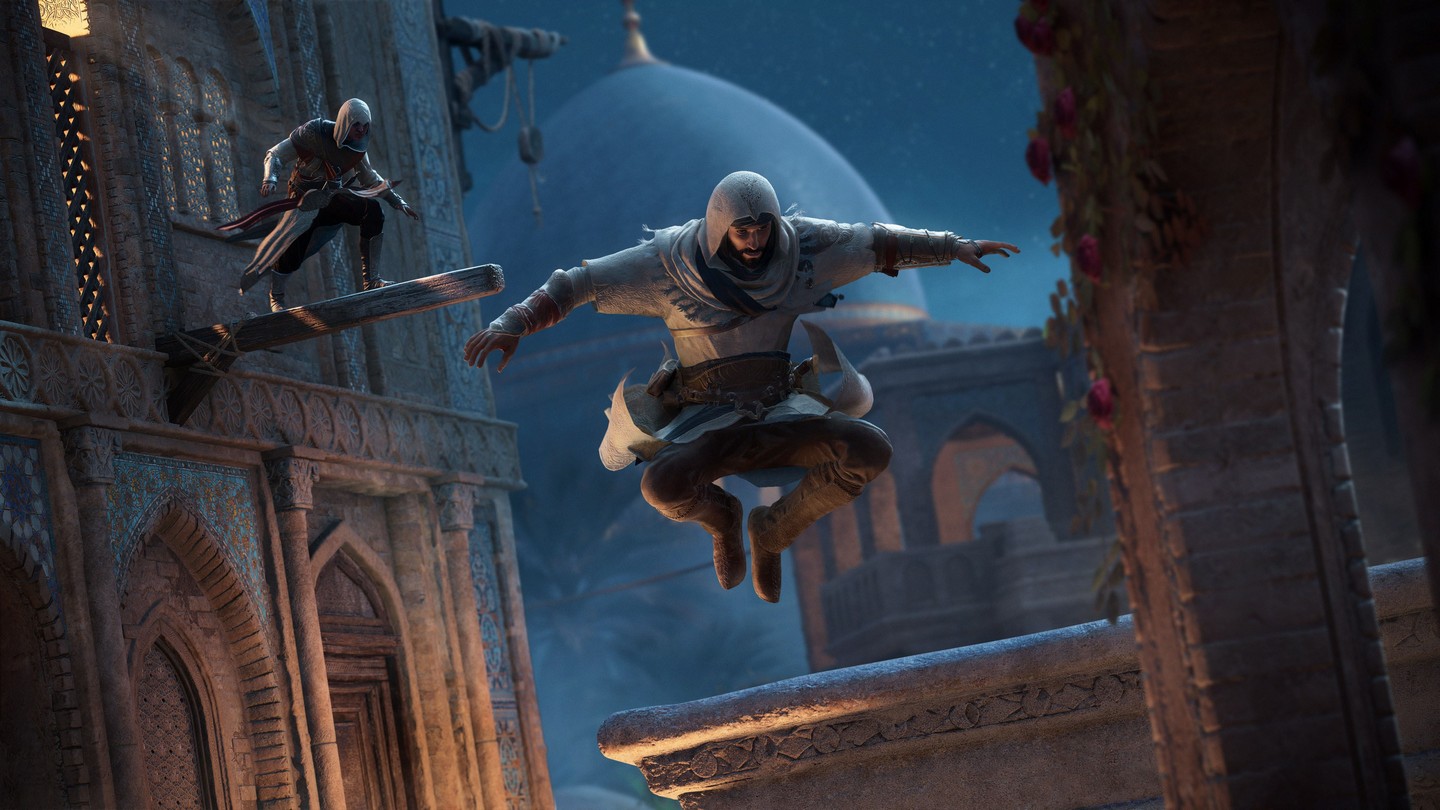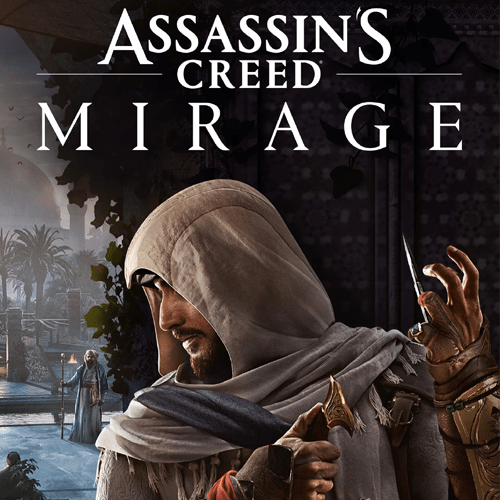Back to square one
I can’t believe it has been over 15 years since the release of the original Assassin’s Creed game. In that time the series has become one of the biggest franchises in gaming, as well as constantly changing over the years and evolving upon the original vision. Assassin’s Creed Mirage is the latest in the series and it takes a step back to 2007 with its entire structure. This is a stealth game at heart that is more streamlined and linear in its main progression. The world is more condensed, the level-up system simplified, and the mechanics of Altair are in full force. It is a callback to classic AC games, but it does so by sacrificing some of the improved mechanics of the newer games.
Mirage takes place in 861 CE which is nine centuries after Origins and right before the events of Valhalla in the AC timeline. The story follows the exploits of a young thief named Basim and his journey from being just a thief to his ascent into the Assassin’s Creed. Anyone familiar with Valhalla will remember Basim and this is basically his origin story. I do like how this game takes the time to showcase the initiation process and some of the early origins of what are known as the Hidden Ones. Basim is not the most interesting character in the universe, at least here, but anyone familiar with the series will appreciate the narrative here as it builds up Basim from his early roots.

MSRP: $49.99
Platforms: Xbox, PlayStation, PC
Price I’d Pay: $39.99
As I mentioned at the beginning, Mirage is all about going back to the series roots. This game is a fairly linear experience with some exploration available. If you are used to the last few games with massive open worlds and leveling systems, this game is more focused on stealth mechanics and taking out specific targets. I dare to say it almost feels like what Altair’s adventure would feel like if it was made today. Getting into combat in Mirage never ends well. When dealing with more than 2-3 foes can lead to a quick death for Basim. Instead, this game is all about investigating locales, figuring out patterns, and moving in the shadows. If you don’t like stealth games, Mirage is definitely not for you.
Lots of previous systems return such as wanted posters and notoriety. This plays a large role in the game as guards will attack on site if it is too high. Tearing down posters or speaking to someone to remove your notoriety is paramount in Mirage. There is also a currency known as favor tokens that can be earned in side activities. These are used to get help when infiltrating areas, as well as removing notoriety. Blending also returns and is more useful as it helps move through areas or eavesdrop on enemies to learn more about the world and your targets. The free movement also feels like a step back. There are now specific places to climb on some structures which can be frustrating when trying to reach new areas.
The progression system from the last few games has been removed entirely. Basim will gain new levels as he moves through the story. Things are not driven by levels, but there are still skill points to earn which will unlock new perks such as automatically pickpocketing enemies you eliminate and a wider area for Eagle Vision. Basim also has an array of stealth tools at his disposal. This starts with simple throwing knives, but eventually opens up to things such as smoke bombs and noise makers. As I said, this game is built almost entirely around stealth, and every upgrade and tool is designed to make these systems easier and more open.
Almost everything can be upgraded in Mirage from your weapons to your gear and even your stealth tools. Completing activities will earn you resources as well as skill points to upgrade your abilities. Eagle Vision returns and highlights points of interest as well as enemies in the world. The bird sidekick also makes a return bringing one of the best new features from the series into the world of Mirage. Basim relies on Enkidu to scout from above, mark targets, and of course find his targets, that is if there are no archers that can shoot them down. Taking the time to complete scouting an area is crucial to success in Mirage.

Combat is truly a last resort here. Unlike the previous few games, trying to take on more than a couple enemies is an easy way to reload a save. Combat is really focused around parrying in Mirage. There are a few types of enemy attacks that are color-coded. Some are unblockable and the others are able to be parried. Missing these takes a huge chunk of life, it is best to escape to fight another day. Stealth is key as you can eliminate nearly any enemy as long as they cannot see you first. Swordplay also lacks that impact feeling when in combat. You can quickly tell that it was not the focus and only meant to be used as a last resort.
There are no quest logs in Mirage. Instead, everything in the story is done through the Investigation Board. This is similar to hunting down the templars in previous games. Basim will need to talk with certain people and discover the whereabouts of his targets and how to best take them down. This board will slowly unlock as you progress through the game. It will note locations, people to talk to, and eventually the target themselves. How players take them down is entirely up to them. There are multiple ways to get into these areas and people to talk to that might be able to help. The game does a nice job of giving the player options of how they tackle it.
The city of Baghdad is familiar. With only one major location it definitely feels more compact than the last few games. There is still plenty to see and do though. There are the main missions, side activities, and even an outskirts to venture into for bonus missions. It wouldn’t be an Assassin’s Creed game without plenty to do though. While the main story can be completed in less than 20 hours, there are also Tales of Baghdad, which are world events to take place in. There are also collectibles such as codex entries, mysterious shards, and lost books to find. There is more content for those that want it, but this is also the most linear and streamlined AC in years.

Mirage is a good-looking game. The world of Baghdad is lush and detailed. I loved visiting the outskirts and the performance mode held a pretty steady 60fps during game play. The animations here are still outstanding, even if they removed the ability to climb anything anywhere. The voice acting and music continue to impress. Having Shohreh Aghdashloo as your mentor is outstanding. The entire cast does an amazing job of immersing players into the world. The production values of these games continue to impress.
Assassin’s Creed Mirage is an interesting entry in the series. On the one hand I adore the streamlined approach to the story. I like being able to invest in this world in a smaller, more focused package. The return to stealth is a turn-off for me though. I have truly enjoyed the more action-focused entries as of late. Still the quality is here and tying this into Valhalla was a smart idea since that was the most recent game. Fans of the lore will have a great time, but those that never clicked with the stealth approach of those early games may find this one a little hard to crack into.
Review copy of game provided by publisher.
